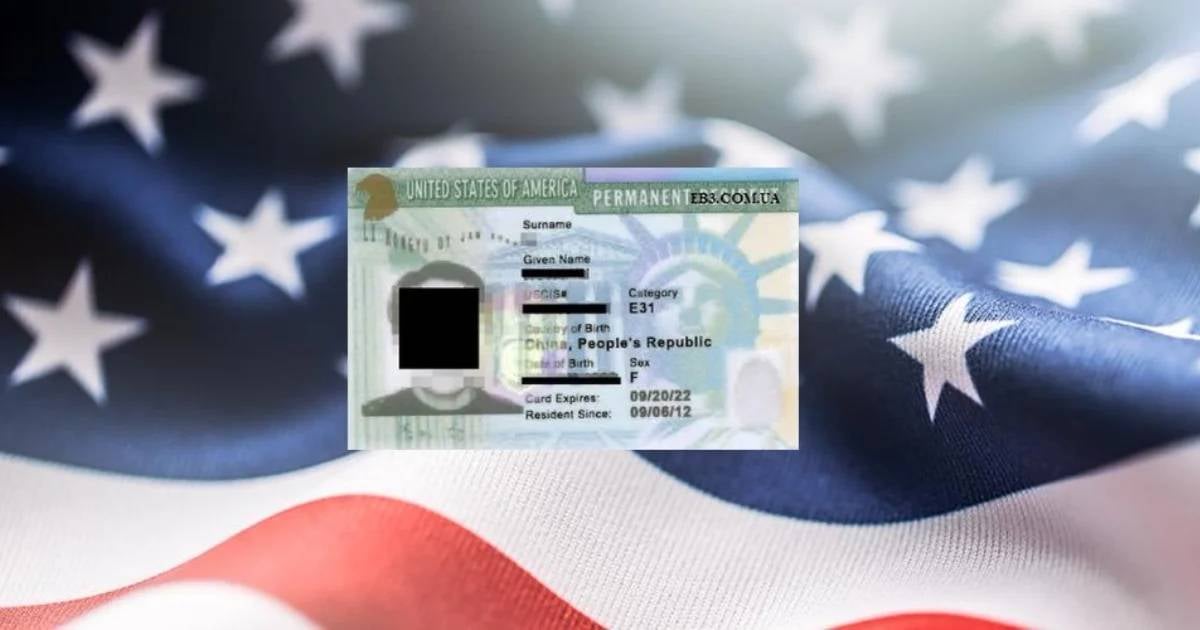A fresh wave of uncertainty is sweeping through the Cuban immigrant community in the United States following a recent decision by Donald Trump's administration to halt the processing of permanent residency applications for individuals with humanitarian status. This includes refugees, asylum seekers, and parole beneficiaries. According to CBS News, the U.S. Citizenship and Immigration Services (USCIS) has directed its officers to suspend the handling of these "green card" applications, leaving hundreds of thousands of immigrants, many of whom are Cuban, in a legal limbo after they had begun their regularization process under humanitarian protection.
USCIS has temporarily paused the completion of certain status adjustment requests while additional identity verification, national security, and fraud prevention processes are completed, the press outlet reported. This action is in response to two executive orders signed by Trump, aiming to tighten immigration controls, prevent potential national security threats, and review the procedures implemented during Joe Biden's presidency.
Humanitarian Parole Revocation: Impact on Cuban Nationals
The decision to rescind status from humanitarian parole beneficiaries, a program initiated in 2022 under the Biden administration that allowed legal and temporary entry, directly impacts citizens from Cuba, Haiti, Nicaragua, and Venezuela. This measure affects over 530,000 individuals, including approximately 111,000 Cubans. However, journalist Wilfredo Cancio suggests around 26,000 Cubans could be left unprotected, particularly those who arrived in the country after March 2024 and have yet to meet the one-year-and-one-day requirement under the Cuban Adjustment Act.
Increased Risk of Deportation and the Elusive Green Card
Immigration lawyers and experts agree that those who had already initiated status adjustment processes—whether through the Cuban Adjustment Act, asylum, Temporary Protected Status (TPS), or special visas like U or T—should not be impacted by this suspension in terms of deportation. However, the most vulnerable are those who entered with parole and have yet to meet the one-year-and-one-day requirement in the U.S.; those who have not applied for asylum or started any legal proceedings; and those without any other immigration status or alternative protection avenue.
These groups have been given a 30-day period, ending on April 24, to voluntarily leave the country, or they may face expedited deportations. A digital application for self-deportation (CBP Home) has even been made available in an attempt to urge those affected to leave the country without judicial intervention. "Those who have done nothing, unfortunately, are subject to expedited deportation," attorney José Guerrero told Univisión. "The government considers them a priority for rapid removal."
The I-220A Document and the Green Card Dream
Federal judges have ruled that the I-220A document—issued after crossing the Mexican border—cannot be used to apply for permanent residency under the Cuban Adjustment Act. Many of these individuals have sought asylum or attempted other avenues to regularize their stay in the U.S. The situation for Cubans with this immigration status is concerning, as a recent report indicates that nearly 550,000 Cubans in the United States could be at risk of deportation due to a lack of clear regularization pathways.
The uncertainty surrounding their legal future and the imposition of stricter measures by ICE have sparked alarm among immigrants and their families, who fear unexpected detentions, as seen in recent raids in southern Florida.
A Broader Migratory Offensive
The suspension of residence processing for asylum seekers and refugees is not an isolated incident. It is part of a broader strategy by Trump to dismantle the humanitarian programs implemented by Biden, arguing that many migrants were "poorly vetted" and that the processes are "riddled with irregularities." New actions include enhanced security and background checks, mandatory social media reviews of applicants, and expanded authority to designate foreign groups as terrorists, including cartels and gangs.
Moreover, last month, the processing of applications from Latin American and Ukrainian migrants under other special programs was already halted, reinforcing the notion that Trump seeks to completely reverse the more humanitarian and flexible approach of the Biden era.
International Reaction and Condemnation
Human rights organizations have reacted with concern and harsh criticism. Amnesty International labeled the parole revocation as a demonstration of "disregard for human rights" and warned of its devastating impact on vulnerable communities. Thousands of Cubans, Haitians, Venezuelans, and Nicaraguans who fled humanitarian crises now face the real possibility of being expelled from the U.S., despite having entered legally and followed established procedures.
The clock is ticking. With proceedings on hold, thousands of Cuban families live today with the fear of losing everything. On social media and migrant forums, confusion, anguish, and a desperate search for legal alternatives to avoid deportation and remain in the country they came to seeking a better life are on the rise.
Understanding Trump's Immigration Policy Changes
What is the impact of Trump's new immigration policy on Cuban immigrants?
Trump's new policy halts the processing of residency applications for humanitarian status holders, affecting over 111,000 Cubans, many of whom may become vulnerable to expedited deportation.
Who is most at risk under the new immigration measures?
Individuals who entered the U.S. with parole and haven't met the one-year-and-one-day requirement or haven't initiated any legal proceedings are most at risk of deportation.
